It took them a while, but as of late in the day on September 14, Marriott Bonvoy finally seems to have gotten around to implementing peak and off-peak dates into their reservations system.
From now on, the amount of points you’ll pay for a free night at a certain hotel will vary not only based on the hotel’s category, but whether that particular hotel has designated your chosen dates as standard, peak, or off-peak.
The full award chart now looks as follows:
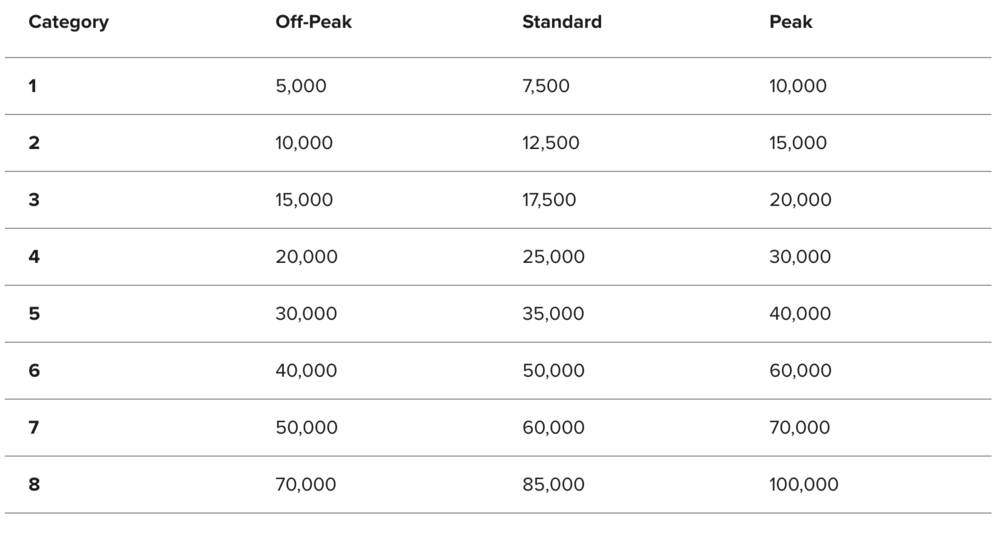
Analyzing the Peak/Off-Peak Schedule
As a reminder, the peak/off-peak schedule is determined centrally by an algorithm (to the extent that Marriott’s IT can even handle algorithms, but that’s a topic for another day). Marriott has stated that the majority of redeemable nights will be priced at the standard rate, while the number of peak and off-peak dates are going to be balanced across the overall portfolio.
There’s no easy top-down view of the peak/off-peak schedule besides browsing through individual cities or hotels during a given set of dates. The best way to do so is to use the “Flexible Dates” feature on an individual hotel’s page:
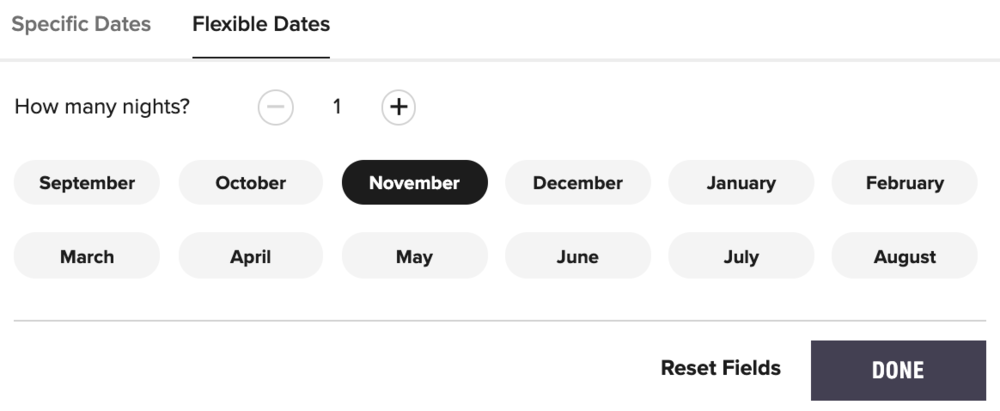
Having said that, based on spending some time searching on the Marriott website, I’ve observed a few overall trends.
Peak Travel Season = Peak Rates
First of all, as you’d expect, higher peak rates have now reared their ugly heads in most of the popular annual travel hotspots around the world, such as Miami in the middle of February…
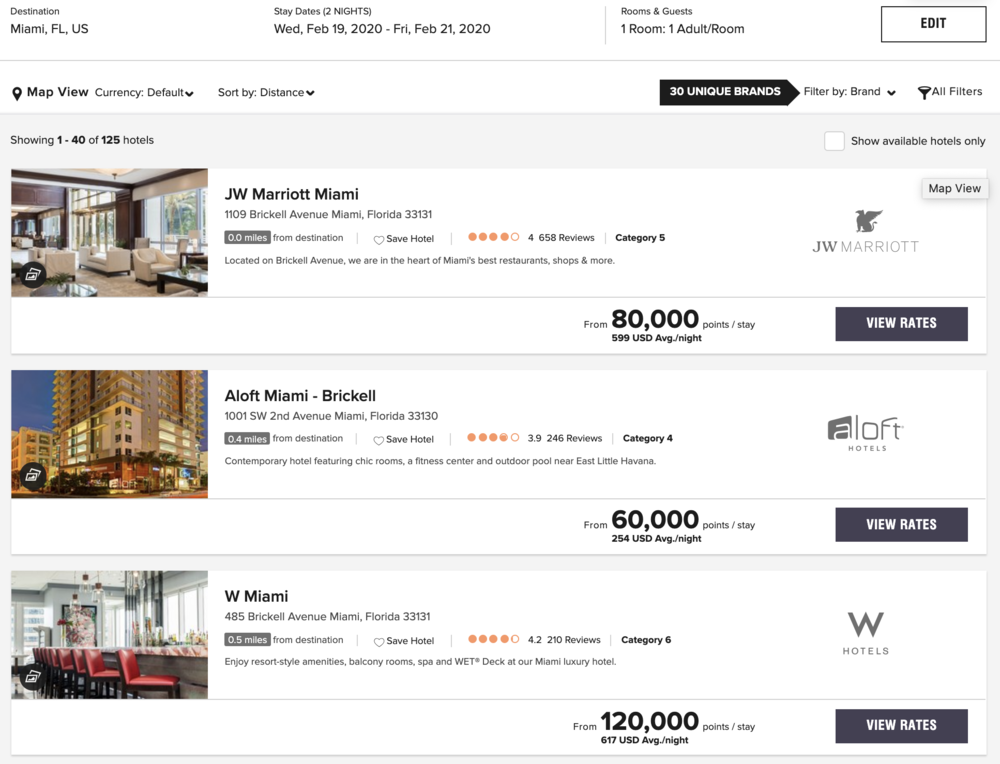
…New Orleans during Mardi Gras…
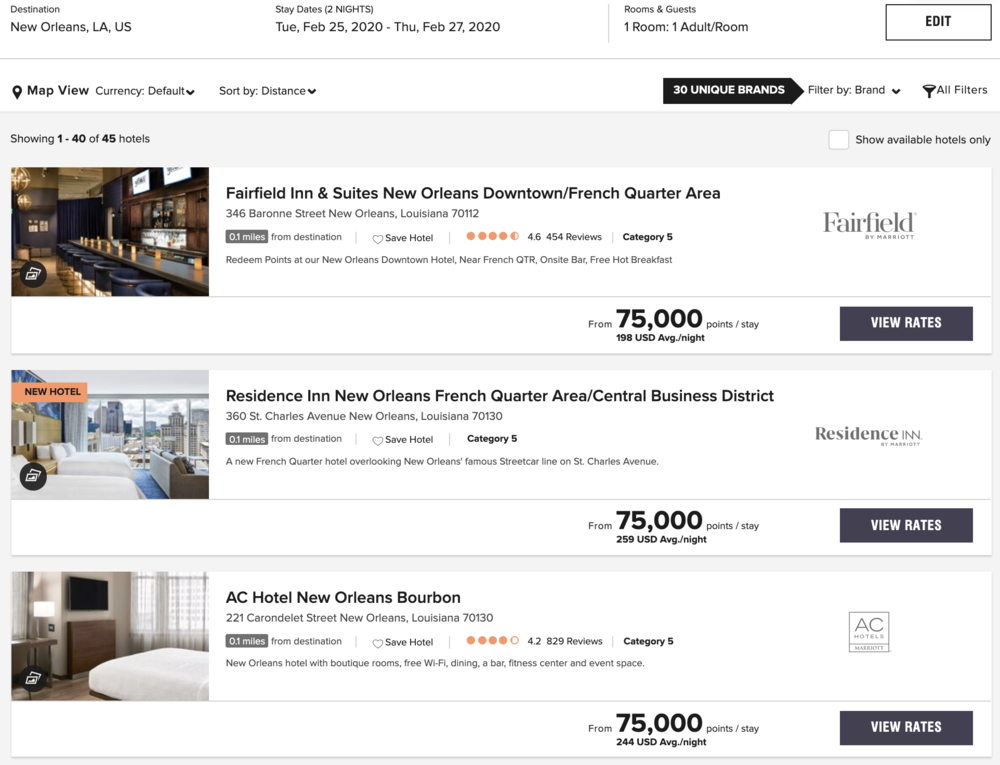
…and Tokyo during Cherry Blossom season, just to name a few. These changes are negative in that they make it tougher to redeem points for high value when the cash rates are correspondingly high, but at the same time, I think we all saw this coming.
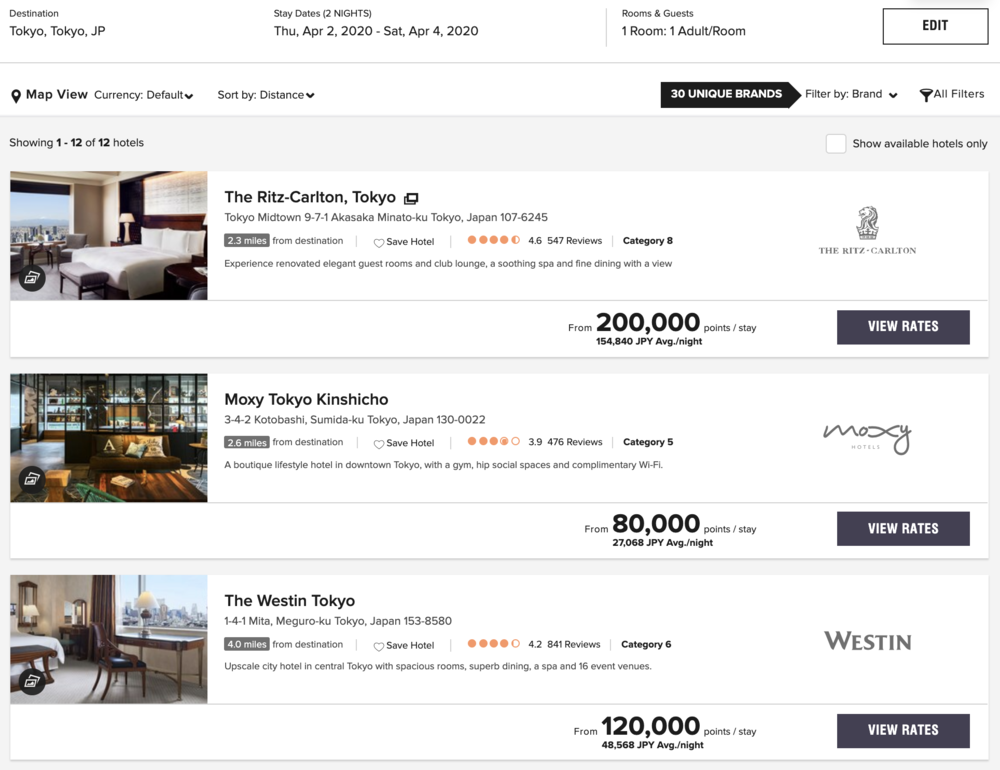
Hotels Within the Same City Mostly Align
The peak/off-peak schedule seems to be mostly but not entirely aligned among hotels within the same locale, which is something that Marriott had hinted at way back in the beginning.
For example, on Christmas Day, hotels in New York City are uniformly priced at the standard rate…

…whereas on Boxing Day, some hotels are priced as standard (like the Category 5 Courtyard and Fairfield Inn & Suites on Fifth Avenue charging 35,000 points per night) while others are priced as peak instead (like the Category 6 The Algonquin Times Square charging the peak rate of 60,000 points per night).

This means that you might potentially find yourself in a situation in which the varying peak/off-peak schedule will affect your decision-making when choosing between different hotels in the same city.
For example, an off-peak Category 6 may end up costing the same as a peak Category 5 (40,000 points), while two hotels within the same category might have wildly different pricing. In essence, it’s harder to compare the price points among hotels unless your travel dates have been firmly set.
The Schedule Broadly Follows Monthly Trends
I also wondered how spread out the peak and off-peak dates would be. Would we largely see these dates landing on the calendar based on the month, or would there be variation on the day-by-day level?
The situation varies by individual hotel, but on the whole it seems that the schedule mostly follows monthly trends, with a little bit of variation within that trend based on the day of the week. To see what I mean, note that the February schedule at the JW Marriott Parq Vancouver has quite a few off-peak dates sprinkled throughout…
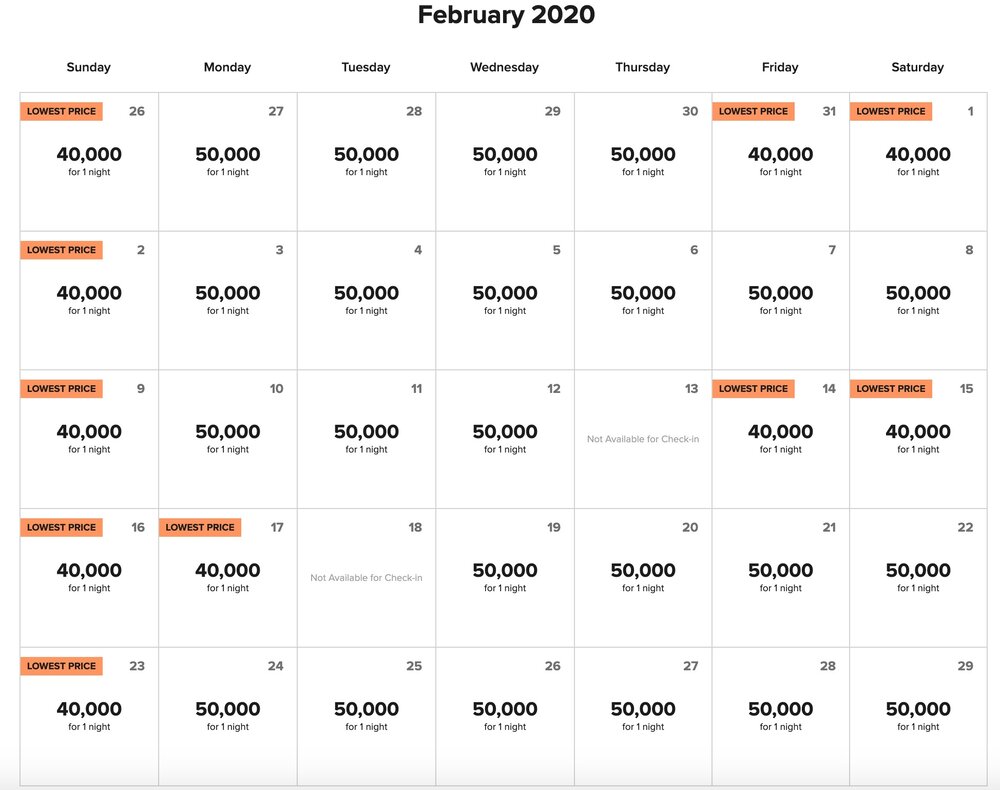
…whereas in July, it’s nearly all peak dates, with only a few dates at the standard rate.
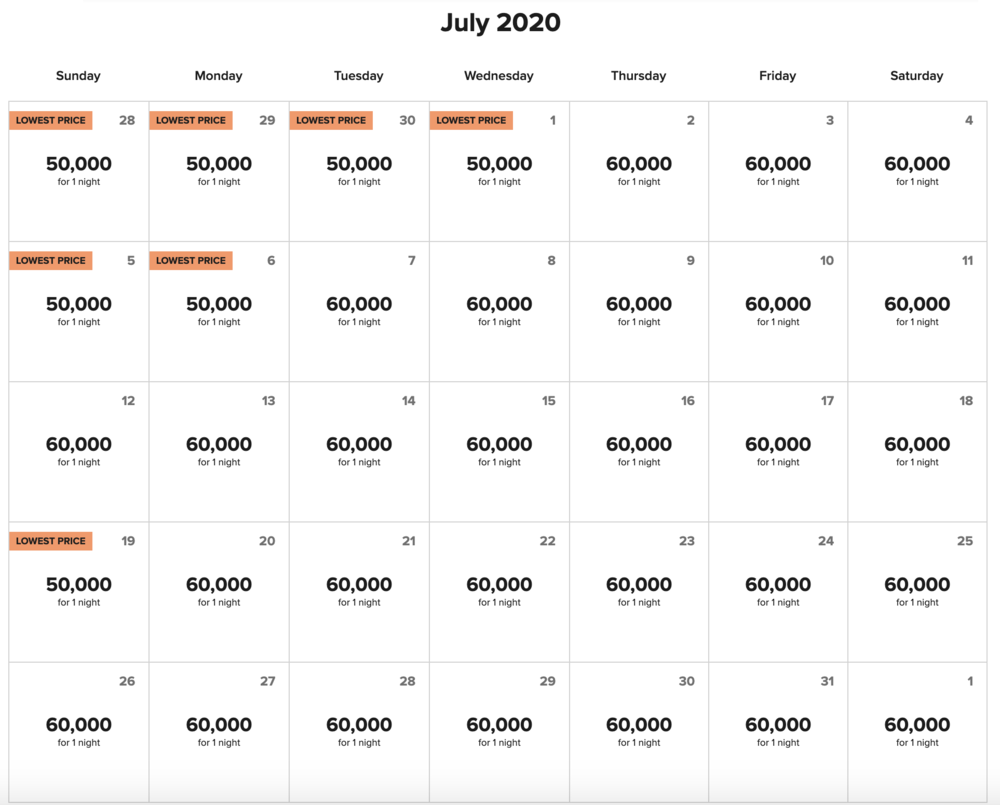
Meanwhile, down under at the Westin Perth, the situation is exactly reversed, with mid-summer February seeing mostly peak dates…
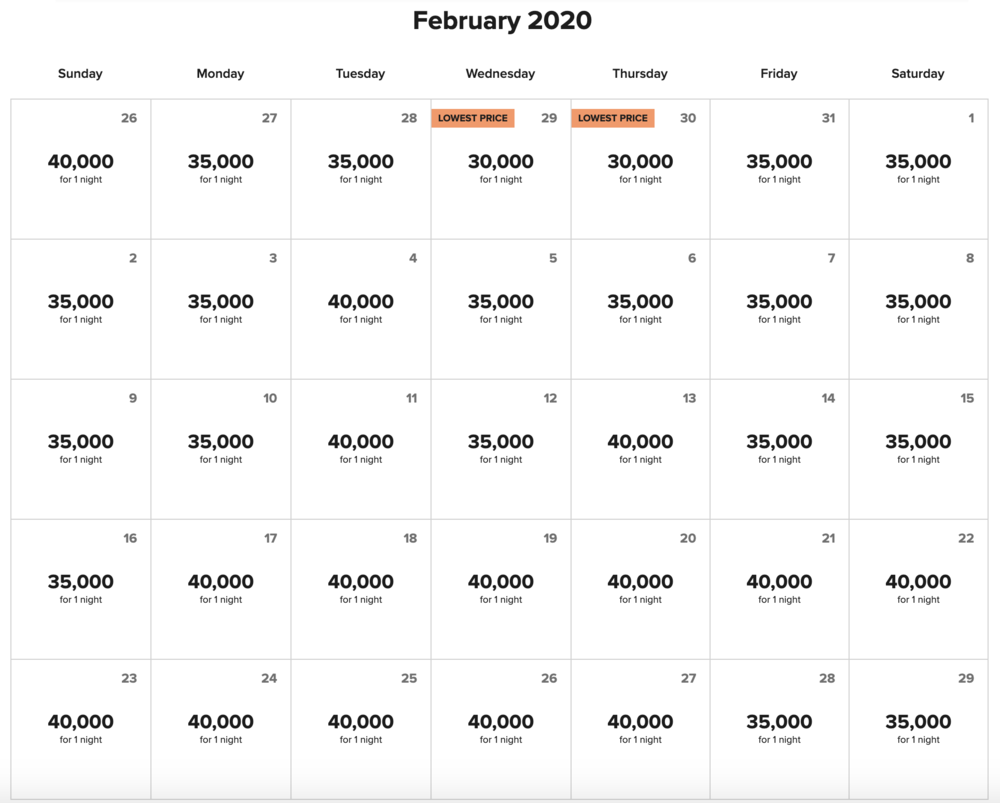
…and July seeing more generosity in terms of off-peak pricing.
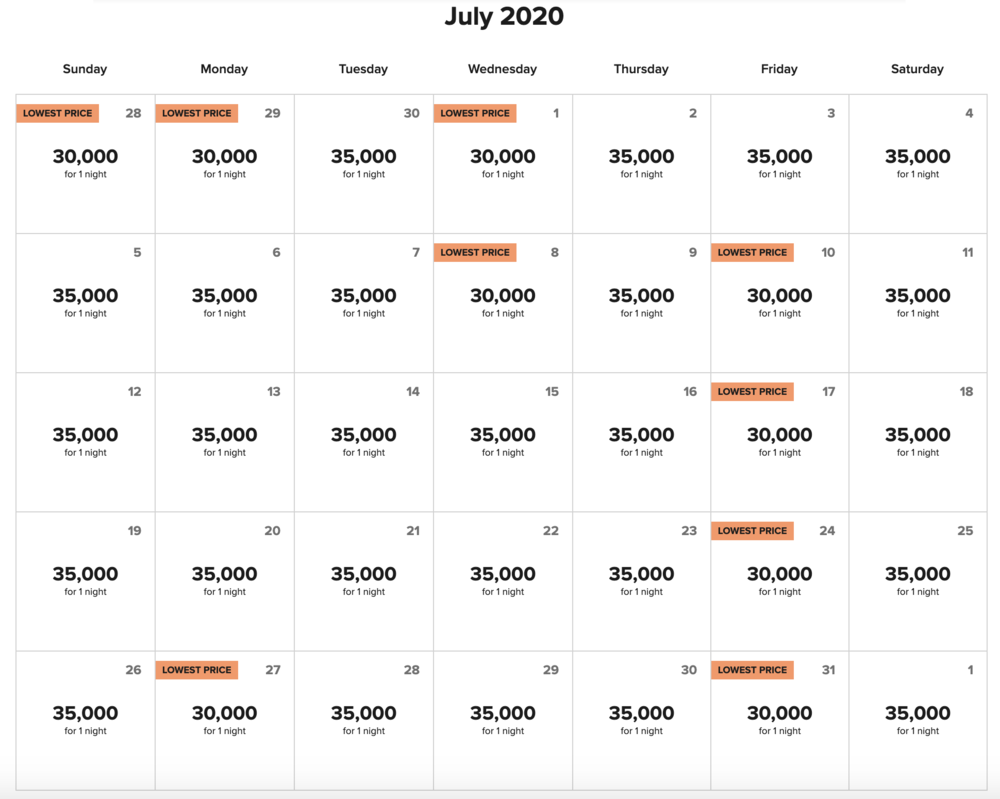
Of course, these are only the broad patterns – local seasonal factors such as popular festivals or sporting events will also attract peak rates, as outlined above.
What About the Most Popular Luxury Hotels?
One of the concerns we had when Marriott said that the peak/off-peak schedule would be balanced across the portfolio instead of by individual hotel was that all of the best hotels would become priced permanently (or almost permanently) at peak rates, essentially creating a Category 9 in the redemption chart.
Well, I’m happy to say that Marriott hasn’t stooped that low. Indeed, many of the best Category 8 hotels continue to offer plenty of dates at the standard rate, and indeed quite a generous number of dates at the off-peak rate as well.
For example, the highly-acclaimed St. Regis New York gives us plenty of off-peak pricing in March 2020…
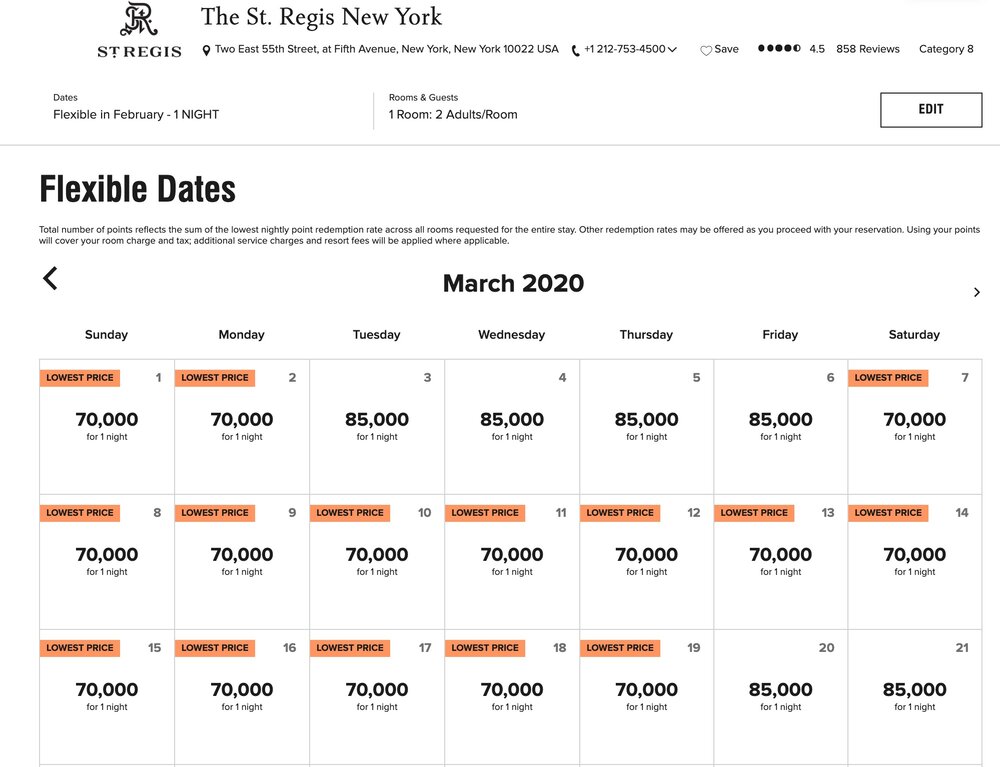
…as does the Ritz-Carlton, Grand Cayman this upcoming October…
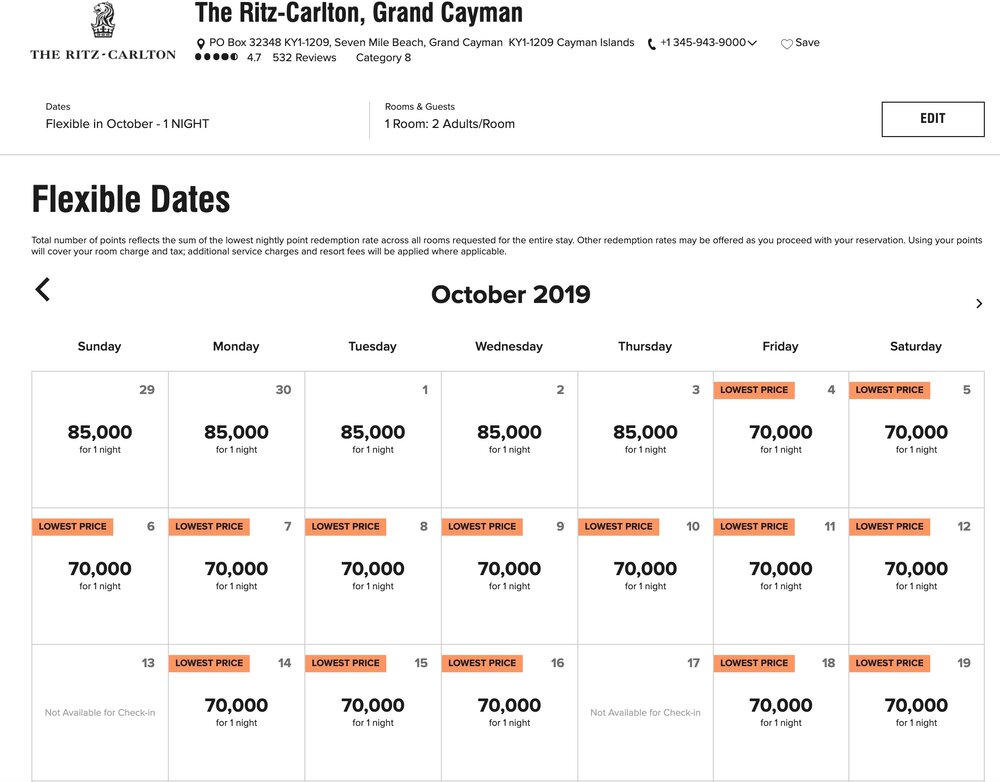
…along with the St. Regis Bali, one of my favourite hotels within the overall portfolio.

Even Al Maha Desert Resort & Spa, which I’d consider to be the grand-daddy among aspirational Marriott Bonvoy properties, gives us wide-open off-peak dates in May 2020, which is just about when the heat starts getting a little unbearable in Dubai.

Of course, the above pockets of off-peak pricing are offset by peak pricing during other, more popular times of year (think February or March for travelling to tropical places, or December for Al Maha).
This drives home the overall point that Marriott Bonvoy is now less favourable for travellers who can only travel during peak times, and more favourable for those with the flexibility to travel during less-popular times.
If you’re in the latter camp, you can now book, say, five nights at Al Maha for only 280,000 Bonvoy points, which I’d consider to be a knockout deal.
Essentially, the program has moved one step closer to a dynamic program, since the points levels now track the nightly cash rates more closely, which was ultimately always the intention behind this move towards peak and off-peak rates.
How Do Peak/Off-Peak Rates Affect Free Night Certificates?
As a reminder, the implementation of peak and off-peak rates has a few implications for the various free night certificates you might earn through the Marriott Bonvoy program:
-
The anniversary free night certificates on the Amex Bonvoy Card and the Amex Bonvoy Business Card (as well as their US-issued counterparts) are valid at hotels of up to 35,000 Bonvoy points.
It’s bad news for holders of these certificates: before today, you could use these certificates to book any Category 5 hotel, but now you’ll be limited to booking Category 5 hotels on standard or off-peak dates.


-
The anniversary free night certificate on the US-issued Amex Bonvoy Brilliant Card is valid at hotels of up to 50,000 Bonvoy points.
I’d argue that it’s good news for holders of these certificates: before today, you were limited to booking Category 6 hotels; now, you can no longer book Category 6 hotels on peak dates, but you can book Category 7 hotels on off-peak dates, since those go for 50,000 Bonvoy points per night.
-
The free night certificate that you can choose as an Annual Choice Benefit from achieving Marriott Titanium Elite status is valid at hotels of up to 40,000 Bonvoy points.
It’s excellent news for holders of these certificates: before today, you were limited to booking Category 5 hotels; now, you may still book Category 5 hotels on any date, as well as Category 6 hotels on off-peak dates, since those go for 40,000 Bonvoy points per night.
-
The seven-night certificates that you get as part of the Marriott Travel Packages (whether from the old legacy program or the current program) are not affected by peak/off-peak dates, and can continue to be redeemed for seven consecutive nights at a hotel within the designated category.
Points Advance Will Now Only Honour the Room, Not the Rate
Today also marked the implementation of a new Points Advance policy within Marriott Bonvoy, in which you can no longer secure the rate at which you made the Points Advance booking, but rather only the room itself.
As I had outlined previously, this was a response to widespread abuse of the Points Advance policy, in which members would be speculatively booking up entire weeks’ worth of inventory at the most popular hotels in advance of category changes.
Now, when you make a booking but don’t attach the points to it, you remain subject to the variability in the number of points required for your stay. A message during the Points Advance booking process makes this clear:
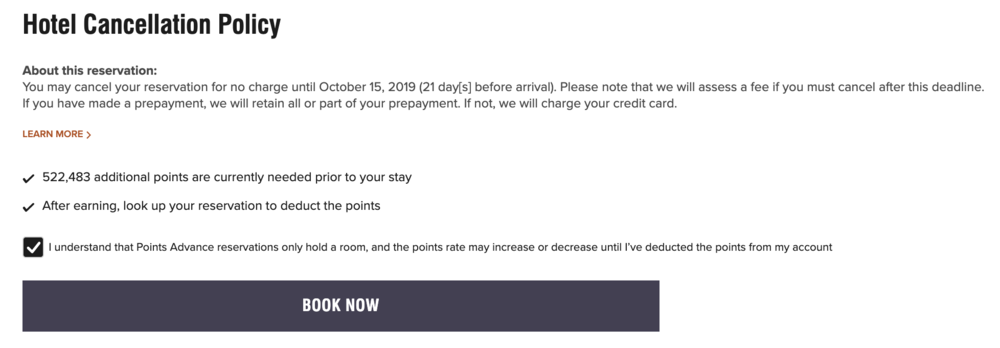
Remember, Marriott’s peak/off-peak schedule gets recalibrated by the algorithms on an ongoing basis, so the only way to be sure of the rate you’re paying is to deduct the points from your account and attach them to the reservation.
For existing Points Advance bookings made before September 14, Marriott is honouring up to five of them per account at the old rates, in case your reservations changed from the standard rate to the peak rate. Simply give Marriott a call and they should be able to top-up your account with the difference in points before deducting the full amount and attaching the points to the reservation.

Going forward, members are supposed to be limited to only three Points Advance reservations at a time, though it’s not entirely clear how they’re going to enforce this. I currently have six Points Advance bookings outstanding, but it seems like I’m still able to make additional ones. Let’s be real here – with Bonvoy being Bonvoy, who really knows?
Conclusion
On balance, the addition of peak and off-peak dates within Marriott Bonvoy cuts away at the value that we can get by redeeming our Bonvoy points when the cash price is otherwise very high. Meanwhile, the gutting of the Points Advance feature is unsurprising, but still disappointing to see.
Taken together, these represent another few steps in the continued decline in the value of the program over the past year or so, although I suppose we can at least be thankful that the program isn’t quite fully dynamic based on the cash rate. Off-peak dates have indeed been sprinkled throughout the schedule in a seemingly fair manner, so there are still a few pockets of value that remain – we’ll simply need to work harder than before to realize that value.




















Is there anywhere in writing that says you can keep five points advance bookings made before sept 14? Just got an email from Marriott saying I have to reduce my bookings to three.
W Miami 120000 point? that’s way above the peak!
Say hello to dynamic award pricing 🙁
I checked my point advance bookings which I made before Sept 14 and apparently they are showing the new, and unfortunately, higher rates. Perhaps I should call Marriott sooner or later?!
Yeah, time to call Marriott and ask the old standard rate to be honoured.